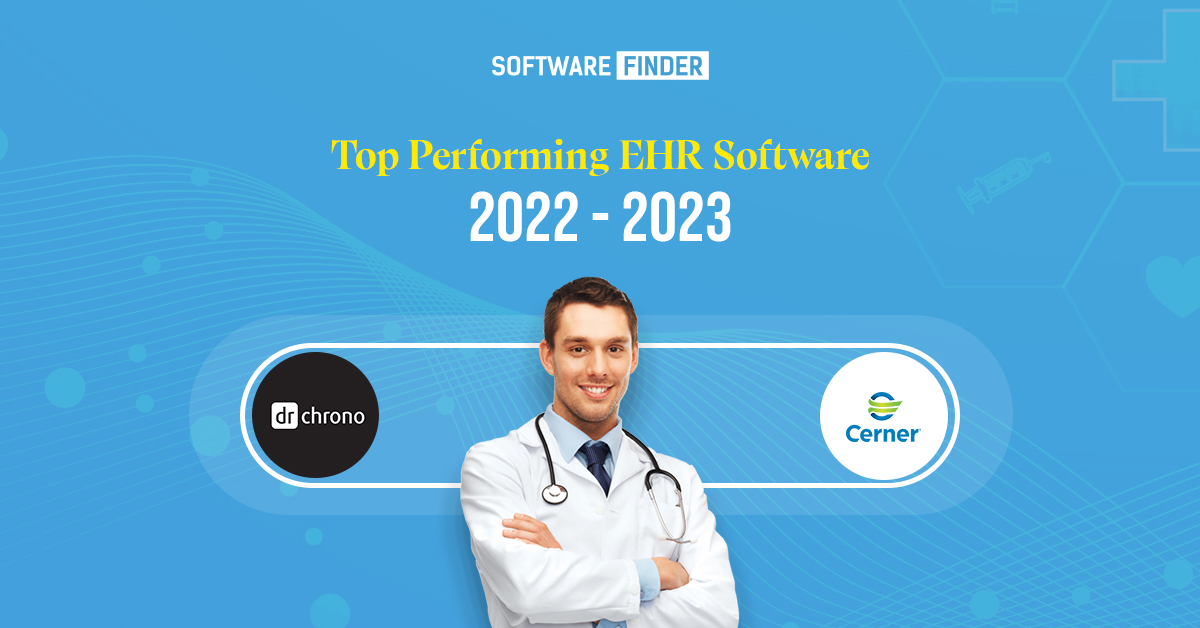Whether you’re a physician or a medical office administrator, you will need to select a top-performing EHR software that can keep up with your busy schedule. While you’re looking for an EHR that’s efficient, there are some other important factors you need to consider as well.
DrChrono EMR
Designed for use in small practices, DrChrono is one of the top-performing EHR software solutions available in the market. The company specializes in providing comprehensive solutions that focus on improving workflows in day-to-day practice.
DrChrono EHR software offers comprehensive features that are easily customizable. Its All-in-One electronic health record can support 16 specialties and is HIPAA compliant. It is also EPCS compatible. It has an extensive suite of denied-claim tools. It supports seamless third-party integrations. It is also highly affordable. Its introductory pricing tiers are quite affordable, allowing even small medical practices to take advantage of the software’s features.
Its appointment scheduling suite is highly customizable. It lets users book appointments within minutes. It includes real-time insurance eligibility checks. It also allows users to register new patients. The calendar includes a drag-and-drop view, which allows you to easily customize your schedule. It can also indicate the type of appointment by color.
Athena EHR
Whether you’re a medical practice owner or a medical staff member, there are a number of electronic health record systems that can help you provide the best healthcare possible. As the healthcare industry moves towards a digitally-driven platform, providers have access to a complete picture of their patient’s health and history.
A large percentage of hospitals and healthcare facilities are using Athena EHR software. This technology enables patients to receive quality care and stay safe. But, data integration between different IT systems isn’t always easy. Several EHR vendors have joined industry-wide data-sharing coalitions. These groups are focusing on real-world data and helping medical practices to reconcile patient profiles across EHRs.
AthenaOne is an electronic health records system that provides physicians with a wide array of tools. These include an app that enables doctors to communicate with their patients. The app also allows them to schedule appointments, document exams, and track health information.
Kareo EMR
Using an EMR system helps doctors to gather accurate patient data at the point of care. This helps reduce human error and improves patient safety.
Kareo EMR is a cloud-based healthcare technology platform that helps providers manage patient care. It offers electronic health records, practice management, and billing software. It also offers a powerful, robust patient portal to help physicians communicate with their patients. It is ideal for both large and small medical practices.
The Kareo Web Services API allows users to connect their Kareo data to other websites or create custom reporting systems. Its interface is simple and easy to learn. The Kareo calendar includes a drag-and-drop tool to reschedule an appointment. Its color-coded calendar also has many filters.
Kareo also integrates with third-party EHRs and billing software. This is ideal for practices that have already implemented an existing EMR. Its calendar features tools for capturing charges when an encounter has ended, as well as a way to send prescriptions to pharmacies. It also warns users of potential drug interactions.
Epic EMR
Almost 40 percent of the population of the United States has their medical records stored on Epic EHR software. It is the most widely used electronic health record system in the country. This data includes vital signs, diagnosis histories, prescriptions, lab results, and progress notes.
Aside from reducing costs, EHRs improve diagnostics, enhance care coordination, and promote patient safety. Despite the benefits of this technology, hospitals face numerous implementation challenges. Some of them include data entry, security, and interoperability.
To address these issues, the Office of the National Coordinator for Health Information Technology is implementing new rules that require EHR vendors to avoid interfering with record exchange. It is also creating new information-blocking rules.
In addition, the industry is shifting toward meaningful data-producing EHRs. This will lead to higher patient engagement and improved health outcomes.
Cerner EMR
Whether your organization is large or small, Cerner EMR software offers a number of useful features and benefits. It has the potential to save your health system money while improving patient care. In addition, Cerner is a powerful tool that can be used on-site or on the cloud.
The Cerner EMR is well-designed, allowing your staff to access patient records quickly and easily. The company also offers a robust HIE (health information exchange), which helps ensure continuity of care for patients who reside in remote areas.
In order to provide the best possible healthcare experience to your patients, your organization needs to be able to store and share patient information. However, this is not always as simple as it sounds. It is important to work with a knowledgeable partner who can help you to identify and mitigate any potential issues.



